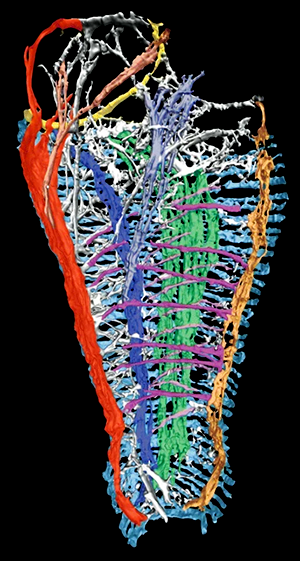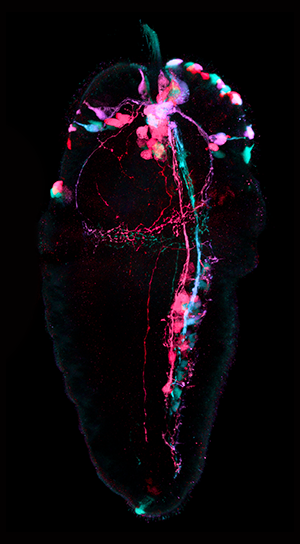Lophotrochozoan EvoDevo

Lophotrochozoan EvoDevo
Molluscan MorphoEvoDevo
Our aim is to resolve phylogenetic relationships, to infer basal traits of the last common ancestor (LCA), and to reconstruct the evolutionary pathways behind bodyplan diversity in mollusks. Thus, we study the embryology and morphology of various key taxa. The tools we use comprise immunocytochemistry, confocal laserscanning microscopy, 3D reconstruction techniques, light and electron microscopy, bioinformatics approaches and gene expression analysis. Our projects contribute to questions relating to the evolution of functional morphological phenotypes (“bodyplan concept”, morphological constraints, etc.), which can only be addressed in the context of the entire life history of a species.
Ongoing:
> Developmental expression of Hox and ParaHox genes in the invasive quagga mussle D. rostriformis (Salamanca)
> Mesoderm and muscle formation in the chiton A. fascicularis (Sachslehner)
> Mesoderm and muscle formation in the quagga mussel D. rostriformis (Schulreich)
Recently completed:
> Anterior-posterior patterning in a worm-like mollusk (Redl)

Molluscan nervous system development
Nervous systems are of particular interest when reconstructing character evolution, due to their complexity and general importance for animal development, physiology and behavior. Since neurons are metabolically expensive, each must serve a specific purpose and therefore has distinct characteristics (e.g. projection pattern, neurochemistry). Embryonic and larval neuroanatomy is often considered to reflect ancestry, because of strict and relatively stable/conservative natural selection. However, if known in sufficient detail, neural traits can also be highly stage, species, and even individual specific. By studying neurogenesis, we can obtain insights into the dynamics between evolutionary constraints and adaptive pressures that shape molluscan nervous systems throughout their life history. Our current focus is on the ontogeny and function of different neuropeptide and neurotransmitter systems that are highly conserved between mollusks and other bilaterians as well as on the molecular basis of molluscan neural progenitor proliferation and maturation.
Ongoing:
> Expression of the insect eclosion (moulting) pathway during molluscan nervous system development (Zieger)
> Ontogeny of molluscan neuropeptide and neurotransmitter systems (Zieger)
> Proliferative properties of molluscan neural progenitors (Zieger)
Recently completed:
> Neurogenesis in the zebra mussel D. polymorpha (Pavlicek)
> Ancestral and novel roles of Pax family genes in mollusks (Scherholz)
Study & research opportunities
Interested in doing an internship, academic thesis or postdoc in lophotrochozoan MorphoEvoDevo? Please contact Elisabeth Zieger or Andreas Wanninger.
